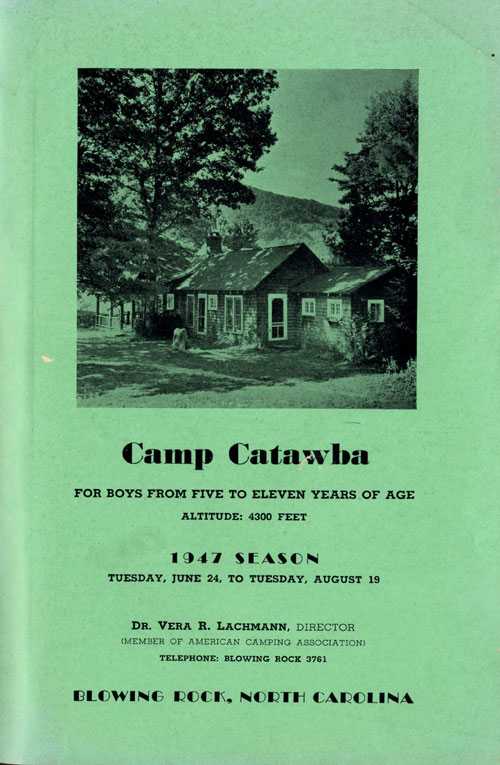
A recent posting on church assemblies in the mountains has led some readers to reflect back on their own summer camp experiences. It also sparked Asheville journalist Jon Elliston to bring Camp Catawba to our attention. Elliston (with the help of illustrator Phil Blank) recently penned a short history of Camp Catawba for the Asheville news weekly, Mountain Xpress. The Blowing Rock camp for boys was started in 1944 by Vera Lachmann, a poet, classics scholar and refugee from Nazi-era Germany. In addition to offering such traditional activities as hiking, swimming, horseback riding and volleyball, Lachmann provided lessons in the classics Lachmann shared her love of the classics with campers. Campers read The Illiad and The Odyssey She retold The Iliad and The Odyssey in her words and guided campers as they staged performances of works by Aeschylus, Sophocles, Shakespeare and Moliere. Tui St. George Tucker, Lachmann’s companion and a composer, directed the camp’s music program, which included an orchestra, choir and private music lessons.
While rich in culture, Camp Catawba perpetually lacked cash. It limped along financially until 1970 when Lachmann and Tucker hosted their last group of boys. Lachmann died in 1985 and left the camp to Tucker, who moved to the camp full time and continued to compose music. Tucker eventually sold the camp to the National Park Service, but she remained on the property until her death in 2004.
Campers, many of whom hailed from the New York City area, shared their memories of life at Camp Catawba in a 1973 book. We found the pamphlet below in our collections. Lachmann’s forbiddance of comic books (see p. 6) makes us wonder how she’d feel about having her camp memorialized in the comic-book style.
Elliston and the Mountain Xpress have created links to other Camp Catawba-related items from collections elsewhere.
